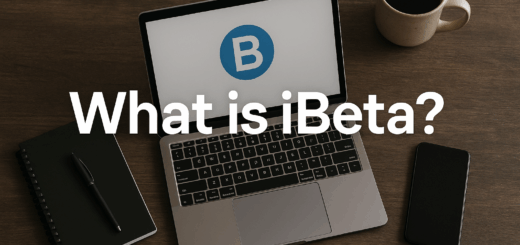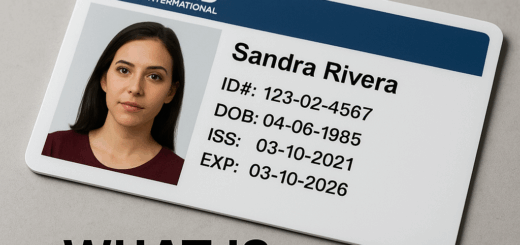Who Needs iBeta Certification?
In an era where digital identity verification and biometric authentication are becoming mainstream, security and trust are non-negotiable. iBeta certification has emerged as a benchmark for biometric security, especially in proving compliance with the ISO/IEC 30107-3 Presentation Attack Detection (PAD) standard.
But who actually needs iBeta certification? The answer spans across industries where fraud prevention, compliance, and user trust are critical.

1. Biometric Solution Providers
At the core, vendors developing biometric technologies are the primary candidates for iBeta certification. This includes:
- Software companies creating facial recognition, fingerprint, iris, or voice authentication SDKs.
- Hardware manufacturers producing biometric scanners, sensors, and wearable authentication devices.
- AI-driven startups working on deepfake-resistant identity verification.
📌 Why they need it: Certification helps vendors prove spoof-resistance to potential customers and gain credibility in regulated industries.
2. Financial Services & Fintech Companies
The financial sector is one of the highest adopters of biometric authentication. Examples include:
- Banks and credit unions requiring secure biometric logins for apps and ATMs.
- Digital wallets and payment providers relying on fingerprint or facial authentication.
- Fintech platforms performing biometric KYC (Know Your Customer) onboarding.
📌 Why they need it: Regulators demand high assurance for anti-fraud measures. iBeta certification ensures compliance while protecting both customers and financial institutions.
3. Healthcare & Pharmaceuticals
Healthcare organizations are increasingly integrating biometrics for identity verification and access control. Examples include:
- Hospitals and clinics ensuring only authorized staff access medical records.
- Pharmacies using biometric authentication for controlled substances.
- EPCS systems (Electronic Prescribing of Controlled Substances), which are subject to DEA regulations requiring biometric verification.
📌 Why they need it: To prevent fraud, prescription abuse, and data breaches, while meeting regulatory compliance standards.
4. Government Agencies & Public Sector
Governments worldwide are deploying biometrics for identity verification and security. Key use cases include:
- Border control systems that use facial recognition to verify travelers.
- Law enforcement agencies verifying identities during investigations.
- Citizen services and e-Government portals requiring biometric logins.
📌 Why they need it: To protect national security and ensure public trust in biometric-driven citizen services.
5. Technology & Mobile Ecosystem
Biometrics are embedded into everyday consumer devices, meaning tech giants and device manufacturers also need certification. This applies to:
- Smartphone makers embedding face unlock and fingerprint sensors.
- Wearables and IoT devices with built-in biometric login.
- App developers integrating biometric authentication APIs for user access.
📌 Why they need it: Certification ensures devices are secure, compliant, and market-ready across multiple regions.
6. Identity Verification & KYC Platforms
Identity verification providers form a fast-growing industry where biometrics are used for onboarding users remotely. Examples include:
- Online banking platforms verifying new account holders.
- Cryptocurrency exchanges requiring biometric KYC checks.
- Remote hiring platforms authenticating candidate identities.
📌 Why they need it: To show regulators and clients that their biometric verification processes are robust against spoofing and deepfake threats.
7. High-Security Industries
Some industries deal with sensitive information, critical infrastructure, or national security. In such cases, biometric systems must be certified:
- Defense contractors handling classified information.
- Energy and utility providers controlling infrastructure access.
- Aerospace organizations using biometrics for secure facility entry.
📌 Why they need it: To maintain zero-tolerance for security breaches and meet strict compliance standards.
8. End Users & Clients
Even companies that don’t develop biometric systems themselves but deploy third-party solutions may require iBeta certification from vendors.
Examples include:
- Banks choosing biometric authentication partners.
- Healthcare institutions selecting biometric EHR login systems.
- Enterprises integrating biometric access control for employees.
📌 Why they need it: Certification offers peace of mind, proving that their chosen vendor has passed rigorous, unbiased testing.
Quick Reference Table: Who Needs iBeta Certification?
| Sector | Examples | Why They Need It |
|---|---|---|
| Biometric Vendors | SDK developers, scanner manufacturers | Market credibility, compliance |
| Finance & Fintech | Banks, digital wallets, KYC fintechs | Anti-fraud, regulatory approval |
| Healthcare | Hospitals, pharmacies, EPCS systems | Data security, DEA compliance |
| Government | Border control, e-Gov, law enforcement | Public trust, national security |
| Technology | Smartphones, wearables, apps | Consumer safety, global distribution |
| Identity Verification | KYC/AML onboarding platforms | Deepfake resistance, compliance |
| High-Security Industries | Defense, aerospace, utilities | Zero-tolerance security |
| End Clients | Enterprises, institutions | Vendor validation |
Conclusion
iBeta certification is not just for biometric developers — it extends across industries where security, compliance, and trust are crucial. From banks and healthcare providers to governments and tech companies, certification has become the global standard for proving biometric reliability.
Organizations that require or demand iBeta certification demonstrate a commitment to safety, regulatory alignment, and fraud prevention — strengthening trust with their users and stakeholders.
FAQs
Biometric software and hardware vendors seeking global recognition and compliance often need iBeta certification.
While not always legally mandatory, it is strongly recommended to meet industry and client security standards.
Yes, many banks and fintech companies prefer or require biometric solutions certified by iBeta for fraud prevention.
Technology providers, governments, and enterprises that handle sensitive user data gain the most from certification.
Many government contracts and compliance frameworks mandate iBeta-certified biometric systems for approval.


